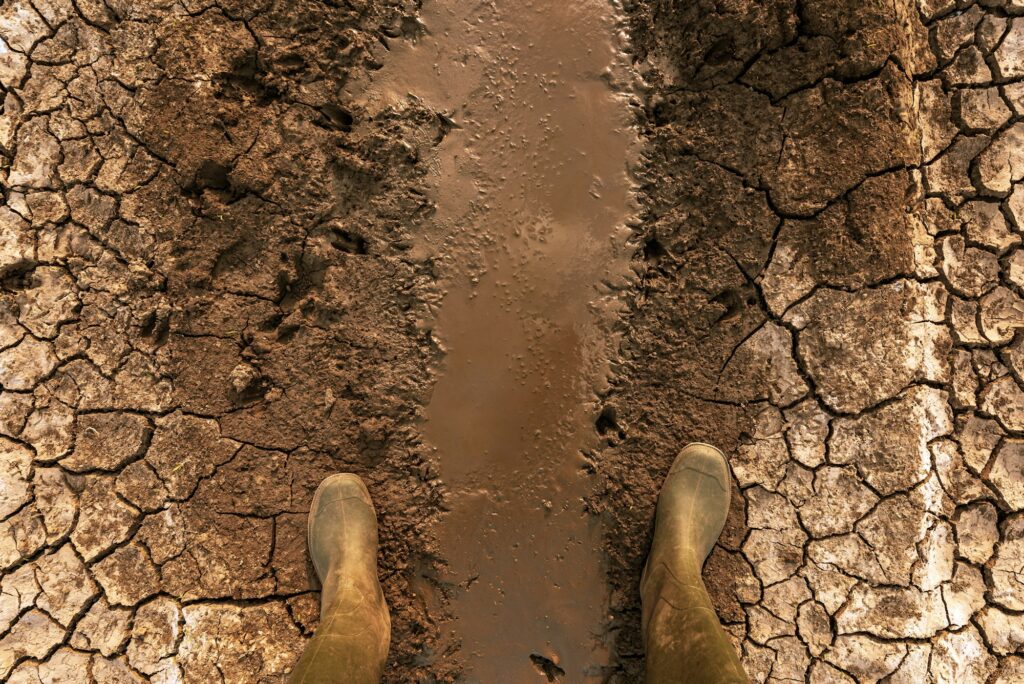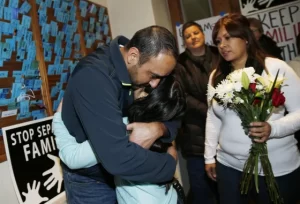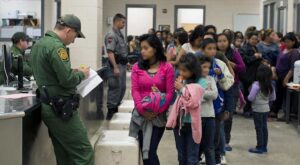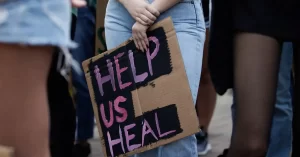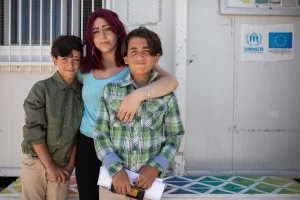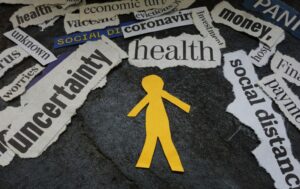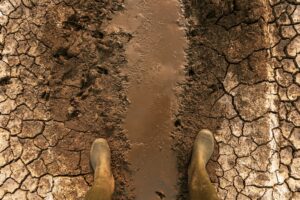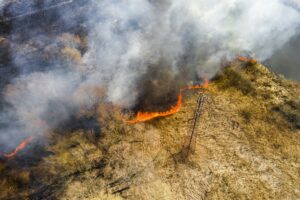Climate change is an increasingly pressing issue that has far-reaching impacts on various facets of life in the United States. Its effects are particularly evident in the realms of education, health care, and living standards. As the frequency and intensity of extreme weather events rise, these sectors face unprecedented challenges, exacerbating existing inequalities and straining resources. Addressing climate change requires comprehensive strategies to mitigate its effects and promote resilience across communities. This essay delves into the intricate ways climate change affects education, health care, and living standards in the USA, and discusses actionable steps to curb these impacts.
In recent years, the United States has witnessed a surge in extreme weather events, including hurricanes, wildfires, floods, and heatwaves. These events have profound implications for the education sector. School closures due to natural disasters disrupt the academic calendar, leading to significant learning losses. For instance, Hurricane Katrina in 2005 devastated New Orleans, causing prolonged school closures and displacing thousands of students. More recently, the increasing intensity of wildfires in California has forced schools to shut down for extended periods, disrupting the education of countless students.
The immediate effects of such disruptions are evident: missed school days, postponed exams, and incomplete curricula. However, the long-term impacts are even more concerning. Prolonged absences from school can lead to decreased academic performance, higher dropout rates, and long-term educational deficits. Moreover, the psychological impact on students who experience natural disasters can be severe, affecting their ability to focus and learn even when schools reopen.
Beyond the immediate disruptions, climate change indirectly affects education through its impact on the broader community. Increased air pollution from wildfires and industrial emissions exacerbates respiratory problems among children, leading to higher absenteeism rates. Additionally, families affected by climate-related economic hardships may prioritize short-term survival over long-term educational goals, pulling children out of school to contribute to household income or care for younger siblings.
The health care system in the United States is also under significant strain due to climate change. Extreme weather events lead to a surge in emergency medical needs, overwhelming health care facilities and stretching resources thin. For example, during heatwaves, there is a noticeable increase in heat-related illnesses, particularly among vulnerable populations such as the elderly and those with pre-existing health conditions. Similarly, hurricanes and floods can result in injuries, waterborne diseases, and mental health crises, all of which require immediate medical attention.
Climate change also exacerbates chronic health conditions. Higher temperatures can worsen cardiovascular and respiratory diseases, and changes in precipitation patterns can increase the spread of vector-borne diseases like Lyme disease and West Nile virus. Additionally, the mental health impact of climate change is profound. The stress and trauma associated with experiencing natural disasters, losing homes, and coping with the uncertainty of future events contribute to a rise in mental health issues such as anxiety, depression, and post-traumatic stress disorder.
The economic burden of climate-related health issues is substantial. Increased hospital admissions, the need for more medical supplies, and the strain on emergency services lead to higher health care costs. These costs are often passed on to consumers, making health care less affordable and accessible, particularly for low-income communities already disproportionately affected by climate change.
Living standards in the United States are being negatively impacted by climate change in myriad ways. Property damage from extreme weather events such as hurricanes, floods, and wildfires leads to significant financial losses for individuals and communities. Homes, businesses, and public infrastructure are frequently damaged or destroyed, necessitating costly repairs and reconstruction efforts. For instance, the destruction caused by Hurricane Harvey in 2017 resulted in an estimated $125 billion in damages, leaving many residents struggling to rebuild their lives.
Insurance premiums are rising as a result of increased climate-related risks. In some high-risk areas, insurance is becoming unaffordable or unavailable, leaving homeowners without a safety net in the event of a disaster. This financial instability affects overall living standards, as families have to allocate more resources to cover unexpected expenses and repairs.
Moreover, climate change is affecting food security and water availability, which are essential components of living standards. Changes in temperature and precipitation patterns disrupt agricultural production, leading to higher food prices and reduced availability of fresh produce. Prolonged droughts in states like California, which is a major agricultural hub, have led to decreased crop yields and increased costs for fruits and vegetables nationwide. Water scarcity also becomes a critical issue during droughts, affecting not only agricultural output but also daily life for residents.
The increasing frequency and severity of natural disasters force communities to spend more on rebuilding and recovery efforts, diverting funds from other critical areas such as education and health care. The economic burden of climate change disproportionately affects low-income communities, exacerbating existing inequalities and leading to a decline in overall living standards.
Addressing the multifaceted impacts of climate change requires comprehensive and coordinated efforts. One of the most effective ways to mitigate the effects of climate change on education, health care, and living standards is by investing in resilient infrastructure. Upgrading school buildings, health care facilities, and homes to withstand extreme weather events can reduce the disruption caused by climate change. Implementing green building standards, improving flood defenses, and using fire-resistant materials in construction are essential steps to enhance resilience.
Enhancing emergency preparedness is another crucial strategy. Strengthening emergency response systems and ensuring that communities are well-prepared for natural disasters can mitigate the immediate impacts on education and health care. This involves conducting regular drills, implementing public education campaigns, and providing adequate funding for emergency services. By fostering a culture of preparedness, communities can respond more effectively to climate-related emergencies.
Promoting renewable energy is vital for reducing greenhouse gas emissions and combating climate change. Transitioning to renewable energy sources such as solar and wind can help decrease the carbon footprint of the United States. Investing in clean energy infrastructure not only reduces emissions but also creates jobs and stimulates economic growth, improving living standards. Policies that incentivize renewable energy adoption and support research and development in this field are crucial for achieving a sustainable future.
Implementing sustainable agricultural practices can help secure food production and reduce the impact of climate change on agriculture. Techniques such as crop rotation, organic farming, and water-efficient irrigation can improve resilience to changing weather patterns. Supporting farmers through subsidies and training programs can encourage the adoption of these practices, ensuring a stable food supply and reducing the economic burden on consumers.
Improving air quality is essential for mitigating the health impacts of climate change. Reducing pollution from industrial sources, vehicles, and wildfires can enhance air quality and reduce respiratory problems. Policies that promote cleaner transportation options, enforce stricter emissions standards, and manage forests more effectively are crucial for achieving this goal. Additionally, public health initiatives that focus on preventive care and education can help communities manage the health impacts of poor air quality.
Expanding access to health care is critical for managing the increased demand due to climate change. Ensuring that health care systems are robust and accessible can help address the surge in medical needs during extreme weather events. This includes investing in health infrastructure, training more health care professionals, and expanding health insurance coverage. By making health care more accessible and affordable, communities can better cope with the health impacts of climate change.
Education and advocacy play a pivotal role in addressing climate change. Raising awareness about the effects of climate change and promoting environmental education can empower communities to take action. Integrating climate education into school curricula can equip students with the knowledge and skills needed to address environmental challenges. Advocacy for stronger climate policies at local, state, and federal levels is also essential for driving systemic change. Community organizations and NGOs like ELOI Ministries play a crucial role in this regard, providing education and resources to help communities understand and mitigate the dangers of climate change.
In conclusion, climate change poses significant challenges to education, health care, and living standards in the United States. The immediate and long-term impacts of extreme weather events, poor air quality, and economic strain require comprehensive and proactive solutions. By investing in resilient infrastructure, promoting renewable energy, implementing sustainable practices, and expanding access to health care, the United States can mitigate the effects of climate change and improve the quality of life for its citizens. Organizations like ELOI Ministries exemplify the critical role that education and advocacy play in addressing this global crisis. Immediate and sustained action is necessary to safeguard the future and ensure that all Americans can thrive in the face of climate change.
AUTHOR:: BAGOMBEKA JOB


